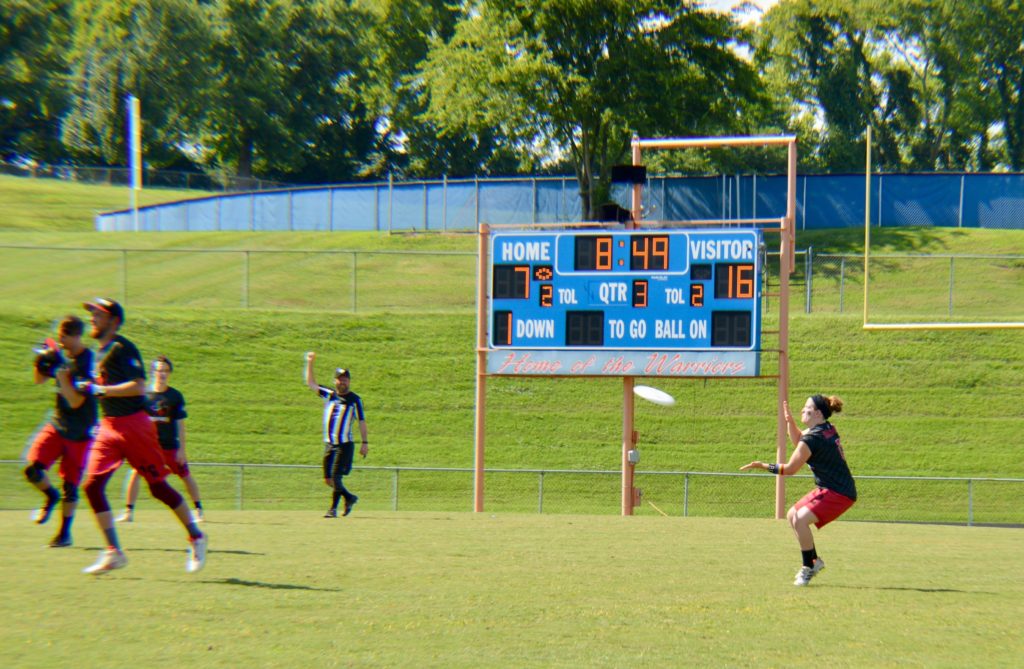
It’s just before the start of the fourth quarter of the Nashville NightWatch’s last home game of the season, and the players are behind by 11 points. In fact, the professional ultimate frisbee team has not won a single game this year.
The coach sets them a less ambitious target. “Our goal coming in was winning this quarter,” he says, before starting a team chant and sending the players back into the field.
The Nashville NightWatch has only been around for three years, and it’s not known for winning many games. But it does have something that sets it apart from the other professional teams in the country: It has the only woman in the entire league.
Ultimate frisbee is a non-contact sport that looks like a cross between soccer and football — but with a frisbee. Two opposing teams of seven on a large grassy field alternate taking offense and defense after each point is scored.
The paid professional athletes play in the 5-year-old American Ultimate Disc League. While it’s not officially a men’s sport, this year is the first time a woman has played a season: Jesse Shofner, a Nashville native who was named the
2016 Ultiworld college player of the year when she was at the University of Oregon.
NightWatch communications manager Jim Surface says Shofner has been a highlight of the team’s tough year.
“She’s what you call an ankle-breaker,” Surface says. “She’s got really quick agility.”
He says even the competitors’ fans cheer her on. “Most places that we’ve traveled to have given her a standing ovation. A lot of pioneer moments in this season, even though it hasn’t really showed up in the win column.”
But being the only woman in a sports league is not easy. Shofner is 5-foot-1 — short on
a field surrounded by lanky men. She went from being the star player on a women’s champion college team to competing against men on a pro team with a terrible record.
“It’s hard,” she says. “Boys are generally larger than me and can cover ground faster. That has been challenging.”
Plus, she says, it’s “hard not to put the pressure of my performance on a reflection of women everywhere. The pressure just sometimes feels like I have to play well in defense of valuing women, and that’s really — that’s a lot.”
Staying motivated is even harder because she’s not a fan of the league in the first place. Many frisbee insiders think the pro league brings hard-earned legitimacy to the sport, but others, like Shofner, fear that the game is becoming too regulated and exclusive.
“I’m not even for the pro leagues,” she says. “But I’m here because I think it’s important. Once I started playing frisbee the only thing I heard was, ‘You play like a boy.’ Women being viewed as powerful and strong and competent and strategic is so important for the world.”
Shofner’s team captain, Tyler Conger, agrees that she is a role model. At a NightWatch game in Raleigh this year, high school girls ran through a tunnel formed by the Nashville team and played an exhibition game during halftime.
“It was all because Jesse was there,” Conger says. “Jesse talked, they talked, and (they) looked at Jesse like she was a huge superstar.”
The Nashville NightWatch ended their season 0 and 14. Next year, they won’t even have the novelty of a female player: Shofner decided she prefers the culture of club frisbee, so she’s joining an elite women’s team in Colorado instead.
But even though she’s stepping out of the spotlight, she hopes more girls and women will join her on the field.


